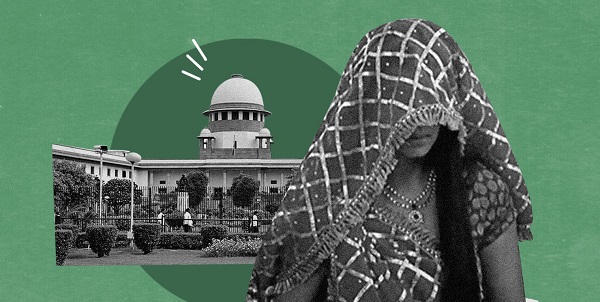Minimum Age of Marriage

This topic of “Minimum Age of Marriage” is important from the perspective of the UPSC IAS Examination, which falls under General Studies Portion.
What do the marriage laws currently say?
- Laws prescribe a minimum age of marriage to dissuade child marriages and abuse of minors.
- The minimum age of marriage is 18 years for brides and 21 years for grooms. This is in accordance with:
- Hindu Marriage Act, 1955
- Indian Christian Marriage Act, 1872
- Special Marriage Act, 1954 (for inter-faith marriages)
- The Prohibition of Child Marriage Act, 2006 prohibits marriage if the bride is below 18 years old and if the groom is below 21 years old.
- The Muslim Personal Law (Shariat) Application Act of 1937 allows marriage if both the parties have attained puberty.
What is happening now?
- In 2020, the government announced the setting up of a task force for examining the age for motherhood. This is to reduce maternal mortality rate, increase nutrition levels and ensure higher education and career opportunities for women.
- A 10 member panel was constituted with these terms of reference. It was chaired by Jaya Jaitly. The panel submitted its report to the Women and Child Development Ministry and the PMO in the same year.
- Some of its recommendations include:
- Raising the minimum age of marriage for women
- Reforming patriarchal mindset
- Improving education access by provision of toilets, sanitary napkins and safe transportation to schools to prevent drop-out
- Provision of sex education
- Provision of vocational training and other livelihood options
- Recently, the Union Cabinet decided to raise the legal marriage age to 21 years for women. After approval, it has been listed for legislative business in the Winter Session of the Parliament.
Why raise the minimum age of marriage for women?
- It will help achieve gender-neutrality.
- Early pregnancies have an adverse impact on the mothers’ nutritional levels, their overall health and even their mental wellbeing.
- Early pregnancies have implications for Infant Mortality Rate and Maternal Mortality Rate.
- Adolescent mothers often give birth to children with high prevalence of low weight and stunting.
- Early marriage deprive women of access to education and livelihood.
- According to the National Family Health Survey-5, child marriage has reduced from 27% (2015-16) to 23% (2019-20). The government seeks to reduce this even further through this move.
What are the challenges?
- Though stunting and low weight are prevalent among the children of adolescent mothers, some experts argue that poverty is the underlying cause.
- According to NFHS-5, 23.3% of women (20-24 year age group) had married before attaining 18 years of age. This implies that the Prohibition of Child Marriage Act, 2006 hasn’t been completely successful in preventing child marriages.
- Raising the legal age of marriage for women will increase the number of underage persons and this will leave them without legal protection.
- According to an analysis of NFHS-4 data by the Centre for Women’s Development Studies, 56% of women got married before reaching 20 years of age. This was even higher (75%) among the poorest of the population.
- The PCMA is often used by parents to punish women who elope to escape forced marriages, housework and domestic abuse or marry against their parents’ wishes. This is according to a study by Partners for Law in Development.
What is the way ahead?
- Raising the legal age of marriage requires amendment of various personal and faith-based laws.
- The group that this move intends to serve are young women who are notably struggling to exercise their rights and freedoms, to become financially independent and facing the myriad pressures from the society and family. Hence, merely raising the legal age of marriage isn’t sufficient to make a difference.
- In addition to raising the legal age of marriage, the government needs to focus on improving access to education, skill development and employment opportunities.
- The threat of sexual assault and rape is one of the key reasons why girls are married off early. Hence, ensuring a safe environment is also vital.
- Focus must also be on addressing early pregnancies by providing reproductive health support and family planning services. These services could focus on delaying the 1st birth and on the preparation for pregnancy.
Conclusion:
Laws cannot be used as shortcuts to achieve social reform and good intentions alone don’t guarantee favourable results. A law to raise the legal age of marriage needs wide societal support and should be accompanied by measures to improve access to healthcare.
Referred Sources
[collapse]
![[Updated] Sabarimala Temple Issue - Customs Vs Constitution](https://www.iasexpress.net/wp-content/plugins/pt-content-views-pro/public/assets/images/lazy_image.png)
